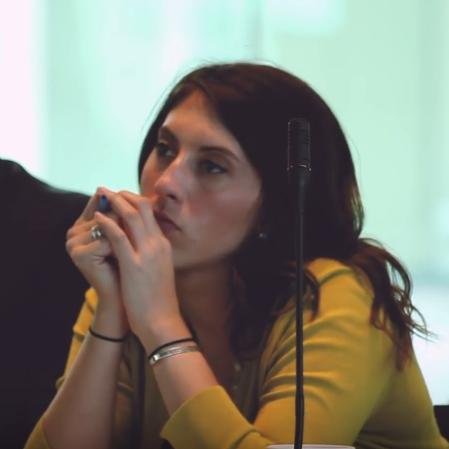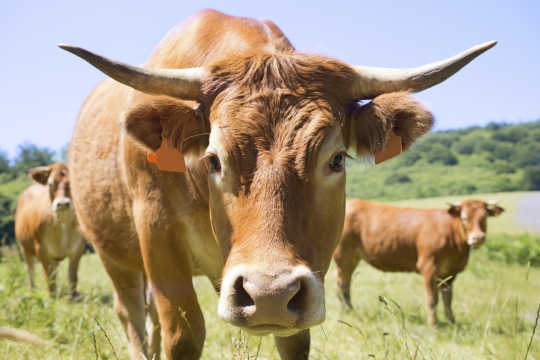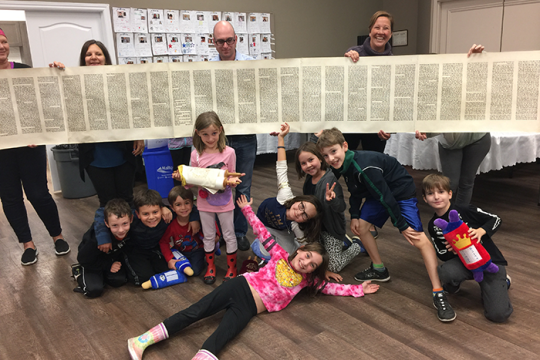
The end of a really good story pulls you in, envelops you in its beauty and intensity, leaving you just a bit shaken as you work to incorporate what you have experienced into the new person you have become. You cannot return to the person you were before the story began – you simply have learned, felt, experienced too much.
So, too, with the Torah.
On Simchat Torah, as we read V’zot Hab’rachah, the 54th and final portion of the yearly Torah reading cycle before immediately beginning again with B’reishit, we conclude a journey of personal growth and evolution that included an intense, seven-week period of reflection between Tishah B’Av and Rosh HaShanah.
V’zot Hab’rachah recounts Moses’ final words to our people, including a personalized blessing from God for each of the 12 tribes of Israel. To Benjamin, Moses offers a blessing for safety; to Joseph, a blessing for bounty; to Asher, a blessing for security; to Reuben, a blessing for long life. To each, a blessing is offered that fits the needs and context of the community, a blessing best suited to aid the tribe in bringing about a better world for their children and their children’s children.
As we close the book on our people’s story and immediately begin anew with God’s creation of the world, what is the significance that the Torah’s final words are tailored blessings to the Israelites? How can these blessings inform us about the world we live in today, right now?
This parashah (weekly Torah portion) reminds of me a joke I inadvertently made while speaking as a panelist at the annual meeting of the Cooperative Baptist Fellowship earlier this year in Dallas, TX. I was asked, as the Jewish representative, what I had learned in the course of my time as a fellow with the Baptist Joint Committee for Religious Liberty. I responded: “Well, candidly, I just didn’t know how complicated it is to be Baptist.” The (largely Baptist) audience erupted in laughter. The moderator responded amiably: “Oh, because it’s so simple to be a Jew.” A smile spread wide across my face.
In that moment, I realized how particularistic I had been about the complications of religion and religious identity. It’s easy to see my world and my religion as complicated. Goodness, each time someone asks me to explain “how Jews feels about Israel” or “how Jews feel about immigration,” my head spins. These question are not easily answered; it’s complicated.
And yet, I imagined life as a Baptist to be simple. I allowed their world to grow small as my own loomed large.
The Jewish people, our tribe, is a beautiful and complex hodge-podge of humanity. There are political conservatives and political liberals; there are men, women, and those beyond the binary. There are Reform Jews and ultra-Orthodox Jews and Jews who practice Buddhist meditation rituals to help them find their way closer to God.
Baptists – another tribe in our midst – are also varied and diverse. There literally are hundreds of different kinds of Baptists. And so it is within Hinduism and Islam and secular humanism – and for all those individuals out there seeking their own answers.
In the end, we all are worthy of blessing.
In fact, perhaps this is the key to how the beginning of our story ends. As God delivers us to the Promised Land, God gives us one last indication of how to preserve that promise by teaching that not only are those around us worthy of blessings, but that because each person, each community, faces unique challenges, they all experience different opportunities for blessing.
Often in my work for the Religious Action Center of Reform Judaism, the social justice hub of the Reform Jewish Movement, I encounter opportunities to work across lines of difference. As we wrestle with issues as important and complicated as reproductive freedom, religious liberty, and comprehensive immigration reform, there can be moments of misunderstanding and mistranslation.
Each of these moments is a chance to honor Moses’ blessings to the 12 tribes of Israel.
The more I look for the blessings – the ways each religious community traverses its own complicated landscape to bring about a better world – the more I can accomplish in partnership. The more time I take to learn the intricacies of others’ tribes – the bigger their world grows in my eyes – the more productive our conversations become.
As I grapple with the end of this reading of our story, this is what I will take with me. With any luck, the person I was before I began reading is now gone, replaced instead by someone more conscientious of all the ways we can be worthy of blessing.




